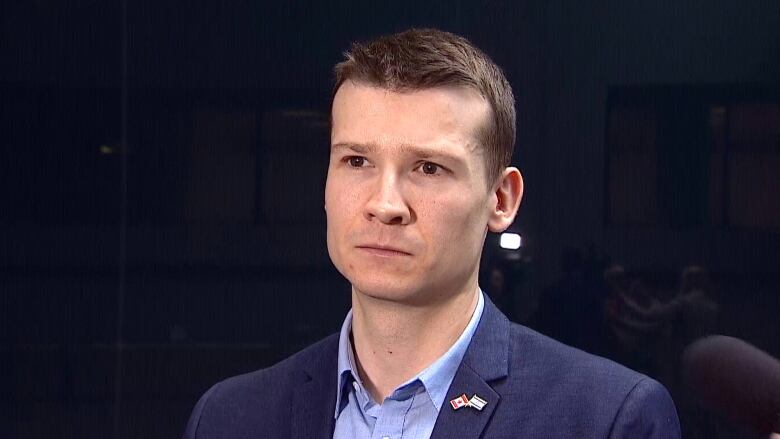Amidst barbed words, Calgary councillors vow more transparency on closed-door meetings
Nenshi says the issue is more about fundraising and political gain than an actual governance problem

ACalgary council committee has agreed to be more open and transparent about closed-door meetings a wedge issue that raises the blood pressure in council chambers.
The motion calls formore clarity around why council is going in-camera and more clear opportunities for councillors to voice their opposition to the private sessions and challenge the reasoning for it even after the meeting has started.
Councillors wouldalso be able to invite "personal advisers" into those meetings, pending approval from council and with prior notice.
Many on council seemed indifferent to the motion, which contained largely clarifications on existing policies, saying there was no reason to raise them.
"I challenge whether or not there's any point to this," said Coun. Jeff Davison."But I'll support itbecause, optically, why not?"
Tension on council
Speaking to reporters after the meeting, Mayor Naheed Nenshi described the measures as solutions to a problem that largely doesn't exist. However, he noted the city has failed in its commitment to release information no longer needed to be kept private.
"Clearly there's no problem," he said."Clearly this is just something that members of council have tried to use for political gain and fundraising purposes. And guess what? No more fundraising until 2021, so."
It was a lightly veiled swipe at Coun. Jeromy Farkas, who has made the issue central to his tenure on council.
Nenshi wasn't the only one who was clearly annoyed.
"It's a waste of taxpayers money on a pet project," Coun. Evan Woolleysaid during the debate.
Report on closed-door meetings
The issue was framed by an administration report that shows Calgary council spends 14 per cent of its time in closed-door meetings. Out of 1,408 items up for discussion, 306 were handledin-camera, the majority of which were land transactions.
The report found other jurisdictions, including Edmonton, spend far less time in private meetings.
Nenshi says it's impossible to compare other cities with Calgary and that some of the blame for more private meetings in Calgary is his fault and it's by design.
He says that under previous mayors, many decisions were not brought to council for discussion, including personnel matters, which fall under the purview of the city manager, not council.
There were also some big issues up for debate: the Olympic bid, Green Line land purchases and the city charter.
Research into other cities
Nenshi says the data can be misleading, with some councils that spend less time behind closed doors appearing more transparent, when, in fact, it means more decisions are made without council involvement in the mayor's office or the city manager's office.
Part of what the committee approved on Tuesday was to see if administration could approve land transactions up to a certain threshold without council involvement.
When asked by reporters about the mayor's assertion, Farkassaid more work needs to be done.
"At this point, talking about how other cities do it, it's conjecture without having actually any member of administration doing that research," he said.
'Weaponized information'
He also addressed comments that were made during the debate about combating falsehoods spread by some members of council what Coun. Shane Keating referred to as "weaponized information" spread by unnamed councillors that ought to be corrected by city administration.
"It's not appropriate to say that something is misinformation or wrong just because you disagree with it," said Farkas, unprompted by reporters.
"You may not like what the facts are but that doesn't automatically mean that it's misinformation."
- MORE CALGARY NEWS |40 Calgary public schools are over 100% capacity
- MORE CALGARY NEWS |Calgary hasspent $1M so far to clear the 11 cm of snow that fell this weekend
- Read more articles byCBC Calgary, like us onFacebookfor updates and subscribe to ourCBC Calgary newsletterfor the day's news at a glance












_(720p).jpg)


 OFFICIAL HD MUSIC VIDEO.jpg)
.jpg)



























































































